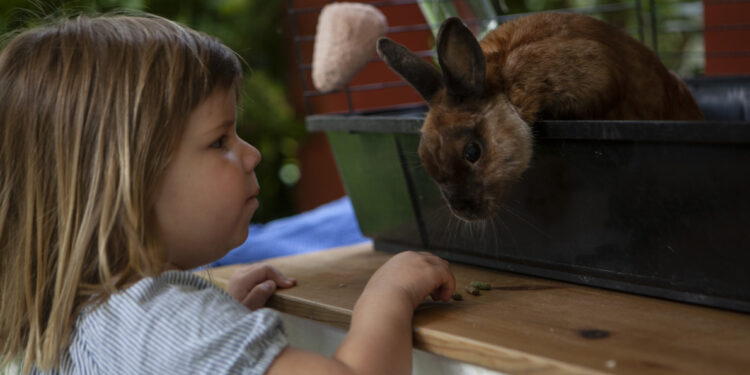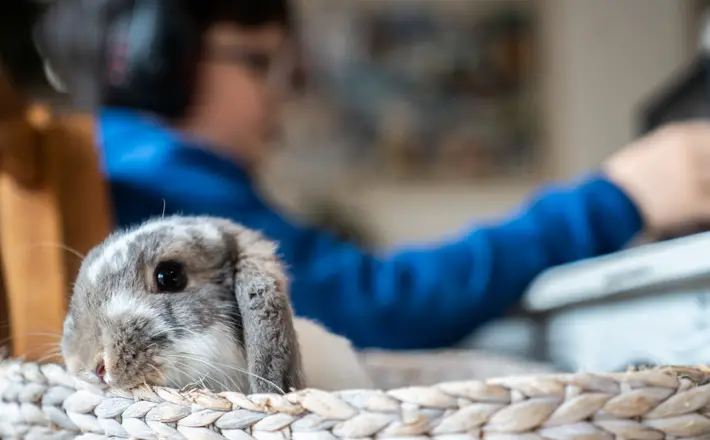Four Things to Consider Before Adopting a Pet Rabbit

Rabbits are a supremely popular choice of pet for the average UK household; 2% of the UK adult population own a rabbit, and the domesticated rabbit population of the UK is estimated to be around 900 thousand. Popular as rabbits are, there are important considerations that need to be made before you bring one into your home. What follows are four of the prime things you should consider ahead of adopting a pet rabbit.
Where Will Your Rabbit Live?
Introducing a rabbit to your home is not a complicated affair, but they have housing needs you will need to address before you bring one into your life. Rabbits are considered hutch animals for a reason; they are sociable but also like the opportunity for privacy, they can get quite messy, and they need adequate shelter from the elements. Make sure the hutch you buy is big enough that your rabbit can run around and stretch with ease, without feeling claustrophobic. The hutch will be their bed, dining room and toilet all in one, so it needs to be at the very least big enough that these three areas do not meet!
Hutches can safely be placed outside, as rabbits are well-built for colder weather. However, if there is room indoors, considering placing your hutch here to protect your rabbit from the worst of the winter and any wet conditions – or, at least, provide a waterproof canopy to protect the hutch from getting wet.
Grooming and Maintenance
Bunnies, like a majority of mammals, are perfectly happy and content with grooming themselves. However, there is a wide variety of breeds, some of which require more active grooming from owners than others. In particular, long-haired breeds need regular brushing to prevent hair matting, and clean up any faecal matter that could lead to flystrike. There is one grooming task that all breeds require, however: nail trimming.
In terms of veterinary care, rabbits are relatively low-maintenance. They are hardy animals, and do not require the same vaccination programmes that more common pets like dogs or cats do. However, regular check-ups with the vets are encouraged, as are vaccinations for rabbit-specific illnesses like myxomatosis.
Nutritional Needs
Rabbits have specific needs when it comes to their diet, and you will need to be aware of the correct balance of foods in order to ensure the right nutrition. Hay and grass should make up at least 80% of their diet, providing essential fibre for their delicate GI tract.
Nuggets are also an important part of rabbit’s diet, and should constitute around 15% of their daily intake; rabbit nuggets can provide additional fibre and vitamin content, helping them stay healthy and avoid disease. The remaining 5% should be given to vegetables, especially leafy ones – rabbits love vegetables, making them an excellent treat with which to bolster their diet.
Looking After Their Mental Health
Lastly, the mental wellness of your rabbit is just as important as its physical health. Rabbits are social creatures, and thrive when paired with another rabbit at an early age for companionship. Exercise and movement are similarly crucial to their mental health, ensuring they get enough air, sunlight and stimulation.










